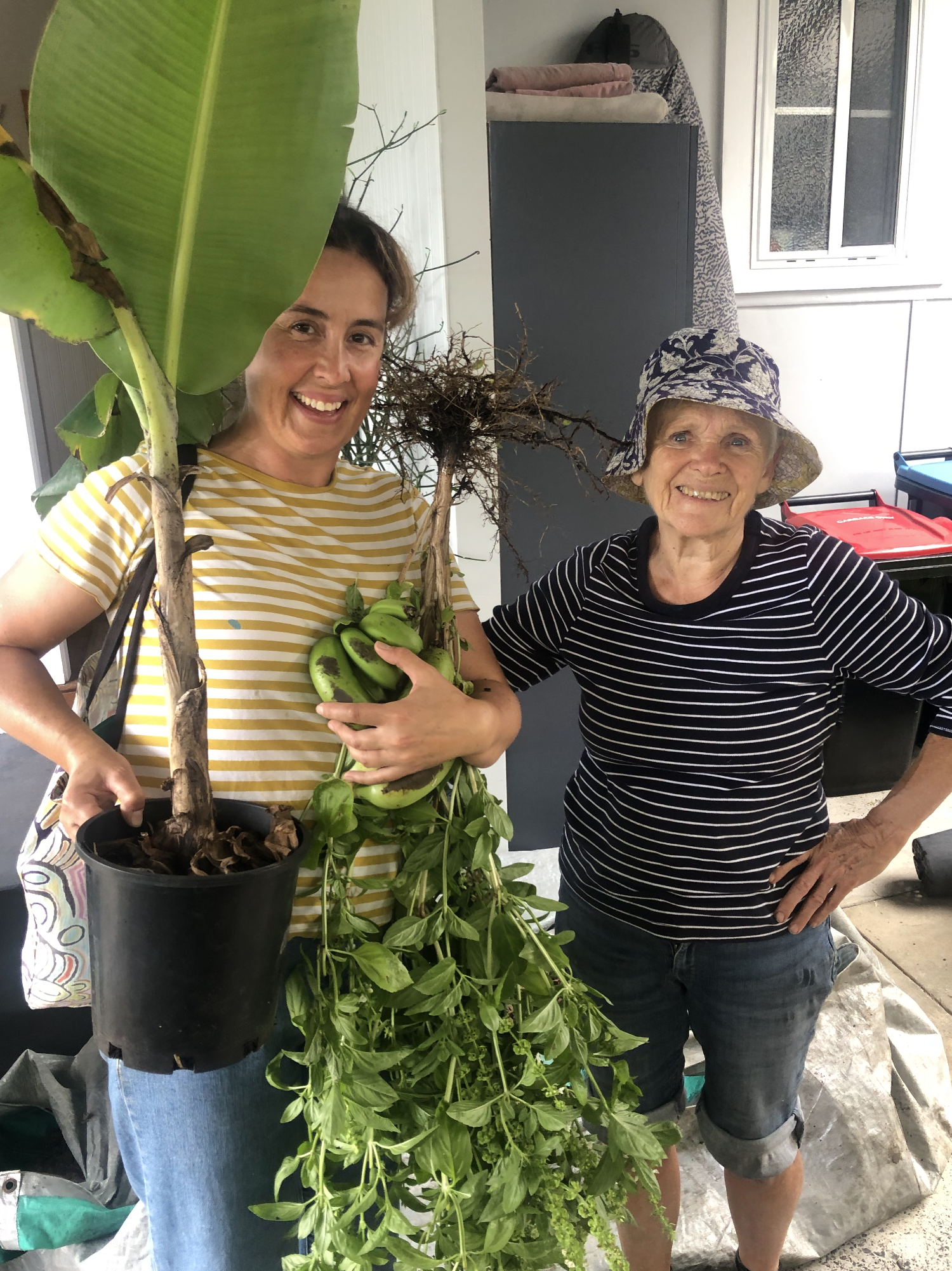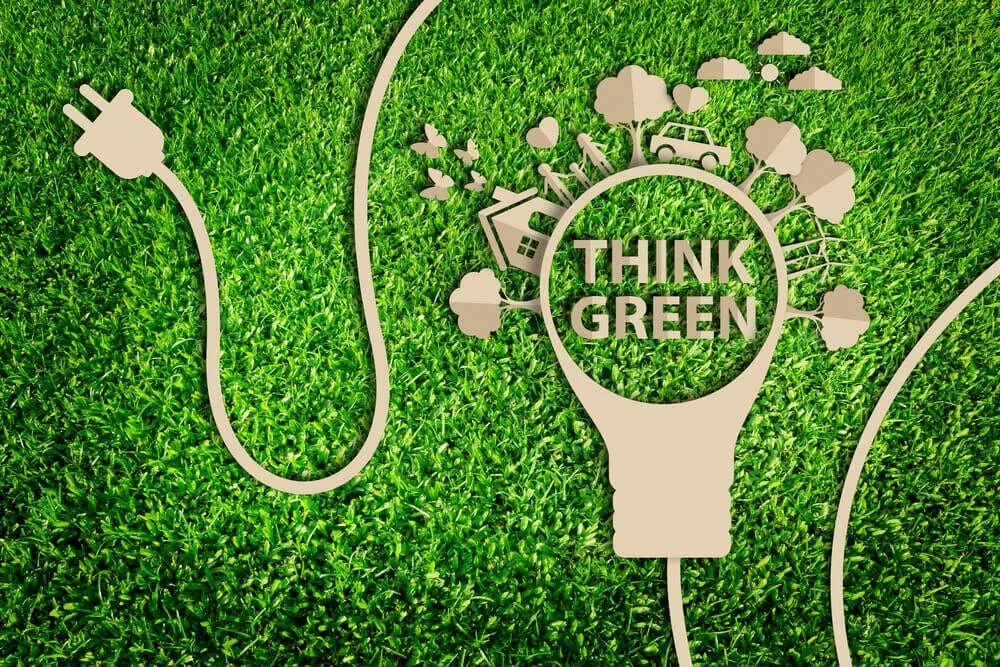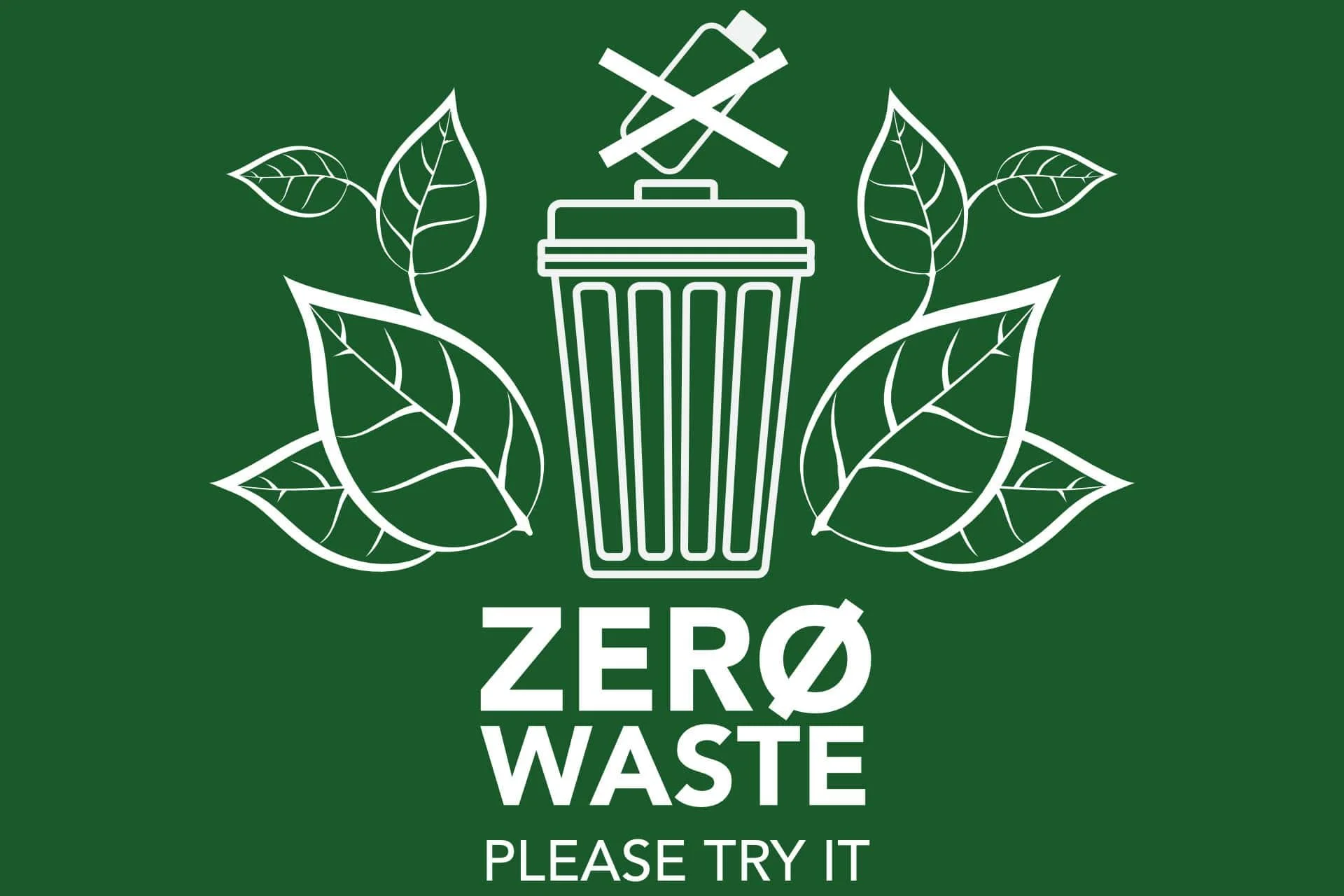Catching bananas, redirecting rainwater and the magic of dried eggshells… highlights from our Permabee in North Curl Curl on Garigal Country.
If you’ve ever been curious about a PNB Permabee, here is a little snapshot of the wonders of what a group of keen beans can achieve on a Sunday morning - simply BYO gardening gloves and a willingness to wheelbarrow!
Kay is a prolific gardener and beloved PNB Member and if you’re lucky, you may have crossed paths with her at one of our events as she has been known to bring generous amounts of kumquats and other delicious home-grown produce along to share!
Last Sunday morning, we were welcomed to experience the magnificence of Kay’s garden firsthand. From the abundant fruit trees heavy with limes and bananas, to the blossoming basil bushes and the gorgeous scent of Native thyme, we were blown away by the variety and vitality of life growing in every corner of her backyard oasis. It was truly inspiring to see.
Led by Permabees Team Leader Marc Stubbs, our first order of business was to dig a swale to redirect the path of rainwater that was flowing in to Kay’s shed. We learned how to use a level to ensure that the water would flow evenly across the contour of the back garden and formed a mound from the first layer of topsoil that we dug out to form the trench. We would continue to add to this mound throughout the morning, pouring ‘barrow after ‘barrow of soil over it to create a new garden bed. We also covered the trench and the mound with a hearty layer of mulch.
At the very start of our swale-making journey…
While team wheelbarrow were busy having a ‘swale’ of a time, some of us were catching the latest banana harvest from Kay’s fruit forest. Since banana trees stop producing fruit after the bunch is made, it was time to cut the trunk down and make the most of the trunk’s inner moisture by slicing it in half and laying it face-down in the garden. Slimy and rewarding work! Now it was time to learn how to make our beds…
Kay has recently harvested veggies from three of her garden beds and as she is practicing crop rotation, it was time to get these empty beds ready for the next lot of seedlings by replenishing the soil. For each bed we had a bucket of coffee grounds, a bucket of compost from Kay’s garden, a bag of Cow Manure (lovingly called ‘Moo Poo’), a sprinkle of Blood & Bone and a sprinkle of dried eggshells that Kay had saved and blended into a egg-shellent powder (high in calcium - for happy worms and plants!). We had a great team effort going here, with some of us on sprinkling duty and others busy raking and making up questionable gardening puns…
Before we knew it, it was time for morning tea and we were treated to an epic spread featuring fresh fruit and home-made dolmades, Naoko’s special apricot slice, cupcakes, freshly flipped mini sourdough pancakes for smoked salmon blinis and Kay’s watermelon kombucha. Yummm! We all went home with a tummy full of treats, new numbers in our phonebook (hello new gardening buddies!) and for some, a tower of basil and a bunch of bananas. A very delightful morning indeed.
If this sounds like fun to you, why not join us for the next one? Become a PNB member (annual membership is $25 for individuals/$35 for households) or come along to our next event and learn about sustainable living for you and your family. We would love to see you there!
What a feast! Thank you for having us, Kay!









